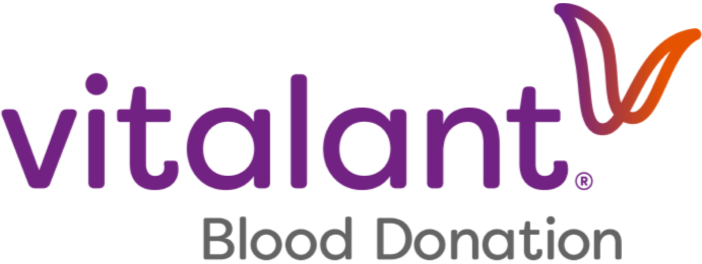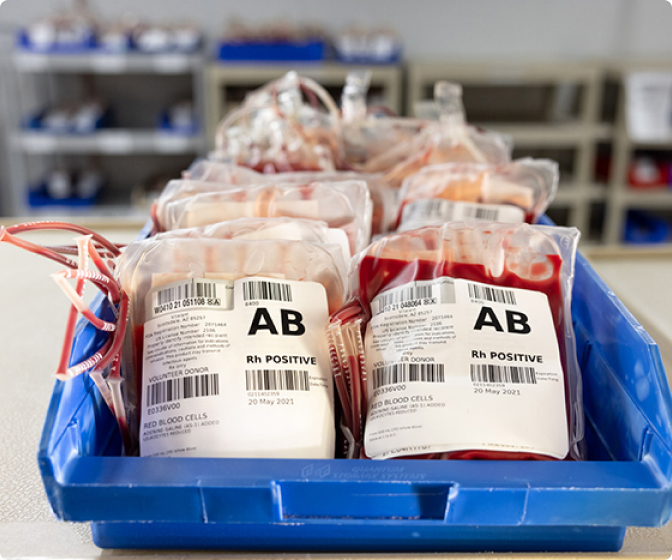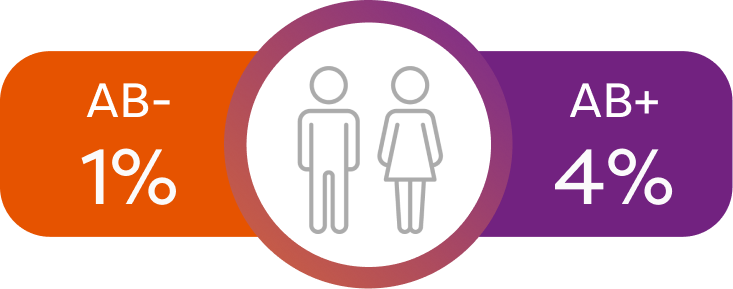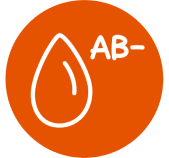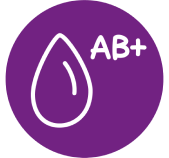Why Blood Types Are Important
When a patients need a blood transfusion, it’s important they receive a blood type compatible with their own. Otherwise, the transfusion may do more harm than good.
Thankfully, in the many centuries since blood transfusions were first attempted, doctors and researchers discovered our different blood types and determined each type’s compatibility with other types.
How Blood Types Are Determined
Two antigens on your red blood cells determine type: A and B. When only the A antigen is present, you are blood type A. Same is true for the B antigen and blood type B. When both are present, that is called blood type AB, and when neither are present, it’s called blood type O. Visit our blood types blog if you want to read more.
There is also a protein called the Rh factor which, if present, makes your blood positive (+) and if not, your blood type is negative (-). The eight most common blood types are a result of the different combinations of A, B, O and the Rh factor — A+, A-, B+, B-, O+, O-, AB+, AB-.
